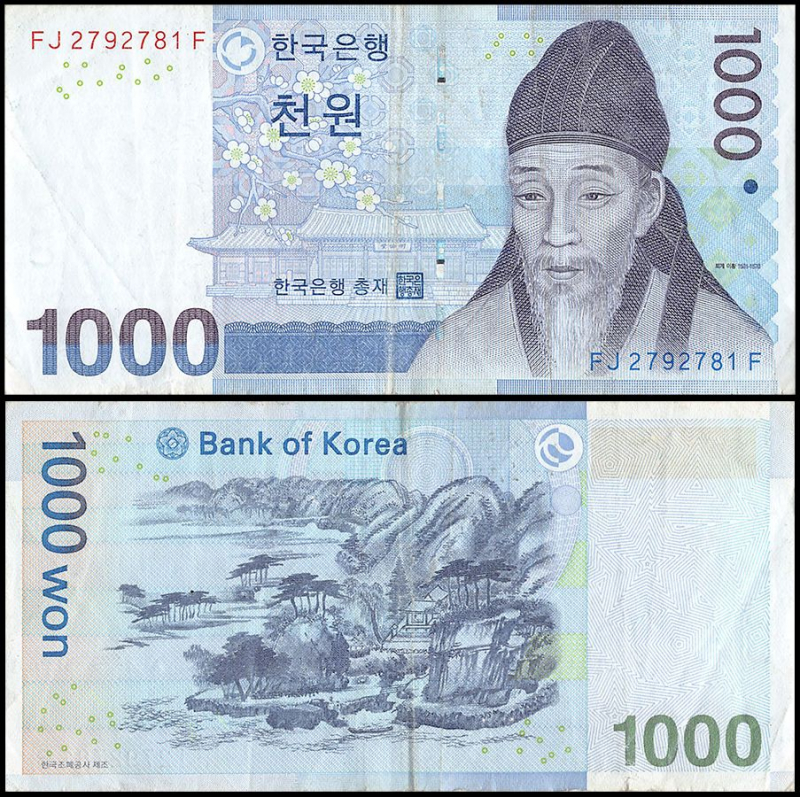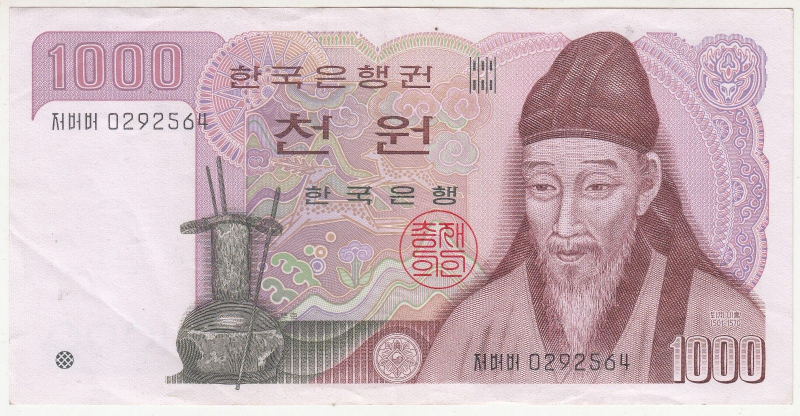Yi Hwang
Yi Hwang (January 3, 1502 - January 3, 1571) was the Joseon Dynasty's most important philosopher, writer, and Confucian scholar. He was a Neo-Confucian literati figure who founded the Yeongnam School and the Dosan Seowon, a private Confucian academy. Yi Hwang is also known by his pen name Toegye ("Retreating Creek"). Gyeongho was his courtesy name.
Yi Hwang is regarded as Korea's most important philosopher, and his portrait appears on the (most commonly used) 1000 Won banknote, with an image of his school, Dosan Seaowon, on the reverse. His interpretation of Neo-Confucianism influenced not only Korea, but also Japan, Taiwan, and Vietnam, and is now being studied on the Chinese mainland. Ten Diagrams on Sage Learning, which was originally published in classical Chinese, has already been translated into modern Korean, Japanese, Vietnamese, English, French, German, Russian, and Polish. Unfortunately, during the Japanese invasion of Korea, the Japanese military looted some of his writings.
Toegyero Street in central Seoul is named after him. Yi Hwang was honored with the Taekwondo pattern Toi-Gye. Many Yi Hwang-related institutes and university research departments have been established. The Toegye Studies Institute was founded in Seoul in 1970, the Kyungpook National University Toegye Institute in 1979, and Dankook University's Toegye Institute and Library in 1986.
Birthdate: January 3, 1502
Birthplace: Ongye-ri, Andong, North Gyeongsang Province, South Korea
Died: January 3, 1571












